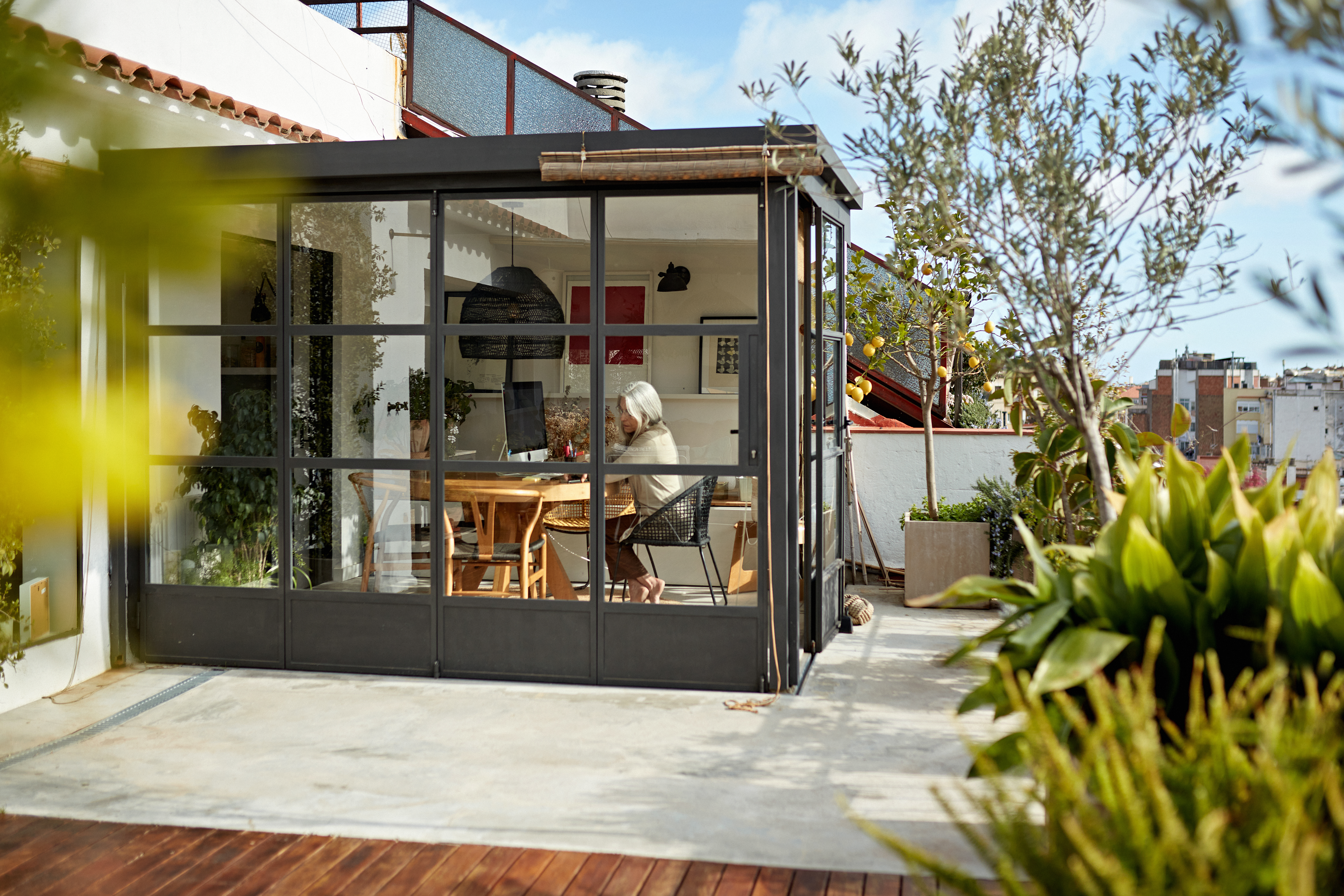Boilers vs Water Heaters: What's the Actual Difference?

For most people out there, hot water isn’t a luxury item; it’s a must-have for daily activities like cooking, bathing, and doing laundry. So your home absolutely has a serious need for an effective water heating system such as a boiler or a water heater. But… what exactly is the difference between a boiler vs water heater?
Is a boiler the same as a hot water heater? No, not quite. They both, as the names suggest, heat water. However, boilers and water heaters do this in different ways.
In this article, we’re going to define them, explore their functions and the different types of each, and hopefully help you decide which is best for you.
What is a Boiler?
The name is a bit misleading, because a boiler doesn’t actually boil water. Instead, a boiler turns water into steam. Boilers can be used to not only heat water, but also heat your home and even generate power.
Boilers heat water very quickly, and like hot water heaters, are available in tanked and tankless versions. However, unlike hot water heaters, some boiler systems come with a hot water storage cylinder.
(Note: When it comes to boilers, tanks hold the cold water, while cylinders hold the hot water.)
Different Types of Boilers
- Combination – combination boilers supply heat for your home and hot water. There is no cold water tank or hot water cylinder, so little space is needed. And it supplies unlimited hot water.
- System – a system boiler doesn’t require a cold water tank, but it does have a hot water cylinder. Water comes directly from the main then is heated and stored in your cylinder. Your hot water capacity is limited by its size – of which there are options – and if you run out, you’ll have to wait until that cold water is heated and stored again.
- Conventional – a conventional boiler has both a cold water tank and a hot water cylinder, so it takes up much more space. It’s great for bigger houses where multiple taps may be open at once. One example could be when one person might be doing the dishes, another person might be showering or running a load of laundry.
- Condensing – condensing boilers are not a type of boiler, but more of an attribute that a boiler can have. Condensing boilers are sometimes more energy efficient than other types, as they retain the heat that escapes the flues – for venting toxic gases produced when heating water with gas – present in non-condensing boilers. Other types of boilers can also simultaneously be a condensing boiler.
Maintaining a Boiler
Proper maintenance will ensure your boiler lasts as long as possible. If you’re maintaining a boiler yourself, these are the areas you’ll want to focus on:
- Keep vents and flues clean, if you have them
- Check water levels monthly – lack of water can cause serious damage
- Check for leaks
- De-scaling – hot water leads to lime buildup, which you’ll want to clean
- Lubricate moving parts every six months
- Flush out all water every six months and clean thoroughly
Next, let’s explain what a hot water heater is. Not to be confused with boilers, water heaters serve a different purpose than boilers.
What is a Hot Water Heater?
Hot water heaters are more cut-and-dry than boilers, as they have just one job: heat potable water. This water is then used for showers, washing machines, to wash dishes, and more.
Different Types of Water Heaters
The two main types of hot water heaters are conventional water heaters and tankless water heaters, but there are also a few other types of heaters explained below.
- Conventional: conventional hot water heaters have a tank where water is stored and heated, either using gas or electricity. Fresh, cold water enters through the bottom of the tank, and is heated to a specific temperature where it remains ready for use.
- Tankless: tankless hot water heaters, also known as “on-demand” water heaters, heat water very quickly, which makes up for not having any hot water stored. What’s more, they require less space. Other types of hot water heaters include:
- Heat Pump/Hybrid – a heat pump or hybrid water heater is often more energy efficient than other kinds of heaters, as they use heat from the ground or air. But keep in mind: that makes these types of water heaters a poor choice in cold spaces.
- Solar – These are for use with solar thermal panels (which don’t produce electricity) that take heat from the sun and transfer that to your water heater. They are best used in warmer, sunnier regions.
Maintaining a Water Heater
Much like boilers, hot water heaters require maintenance to work more efficiently and to extend their life. That means regular draining, flushing, removing sediment, etc - either on your own, or by a professional.
For a thorough, six-step process to hot water heater maintenance, This Old House recommends the following steps. (The article also includes photos for each step that should help you out significantly, if you plan on doing the maintenance work yourself).
- Test the valve – make sure your power is off and the water valve is closed. Lift the tab briefly, let out a little water, and release. The water flow should stop. If it doesn’t, the valve may need to be replaced.
- Check the anode rod – the main thing you’re looking for is calcium. If it’s coated, you’ll want to clean it.
- Drain tank and remove sediment – drain the water into a bucket, then let some fresh water into the tank to mix with the sediment at the bottom. Repeat until the water going into your bucket is clear.
- Adjust the temperature (optional) – lower temperatures will save you money. Locate the temperature dial on the side of the tank and turn with a flathead screwdriver.
- Insulate the pipes – insulating the hot pipe will help retain heat, while insulating the cold will prevent condensation when the weather is warm. Make sure the pipe insulation foam matches the diameter of your pipes.
- Insulate the heater – using an insulating blanket, cover everything except controls and the top of oil or gas heaters. Secure the edges to the tank with foil tape.
Do You Need a Boiler or Hot Water Heater?
With all the options of boilers and hot water heaters out there, there are as many similarities as there are differences. So it’s tough to pick the right option for your home, and your individual needs.
Ultimately, it comes down to individual circumstance and choice. Some important factors to consider when choosing a boiler or a hot water heater are:
- What is the climate where you live?
- How much room do you have to store it?
- How many people will be using your system’s water supply?
- Do you need on-demand access to hot water?
The one constant is that, with proper care and maintenance, whatever hot water heating system you choose should easily last you between 10 and 20 years – or more! Check out this resource from Energy.gov for a great breakdown of all types of water heating systems, including how long you can expect each to last. (FYI, they refer to boilers as “Indirect.”)
Of course, you could save yourself some time, money, and trouble and forego hot water entirely. After all, who doesn’t love cold showers in the middle of December?
If you’re not the cold-shower type but are considering replacing your boiler or hot water heater, you’re probably concerned about about the expense involved in purchasing a water heating system for your home. Fill out our 5-question form to get approved within 30 minutes (or less) for Ygrene’s home improvement financing options. Unlike cold showers, they’re not the least bit painful. And with lower interest rates than other traditional financing options, you may have money left over for something a little more fun than a boiler or water heater!




